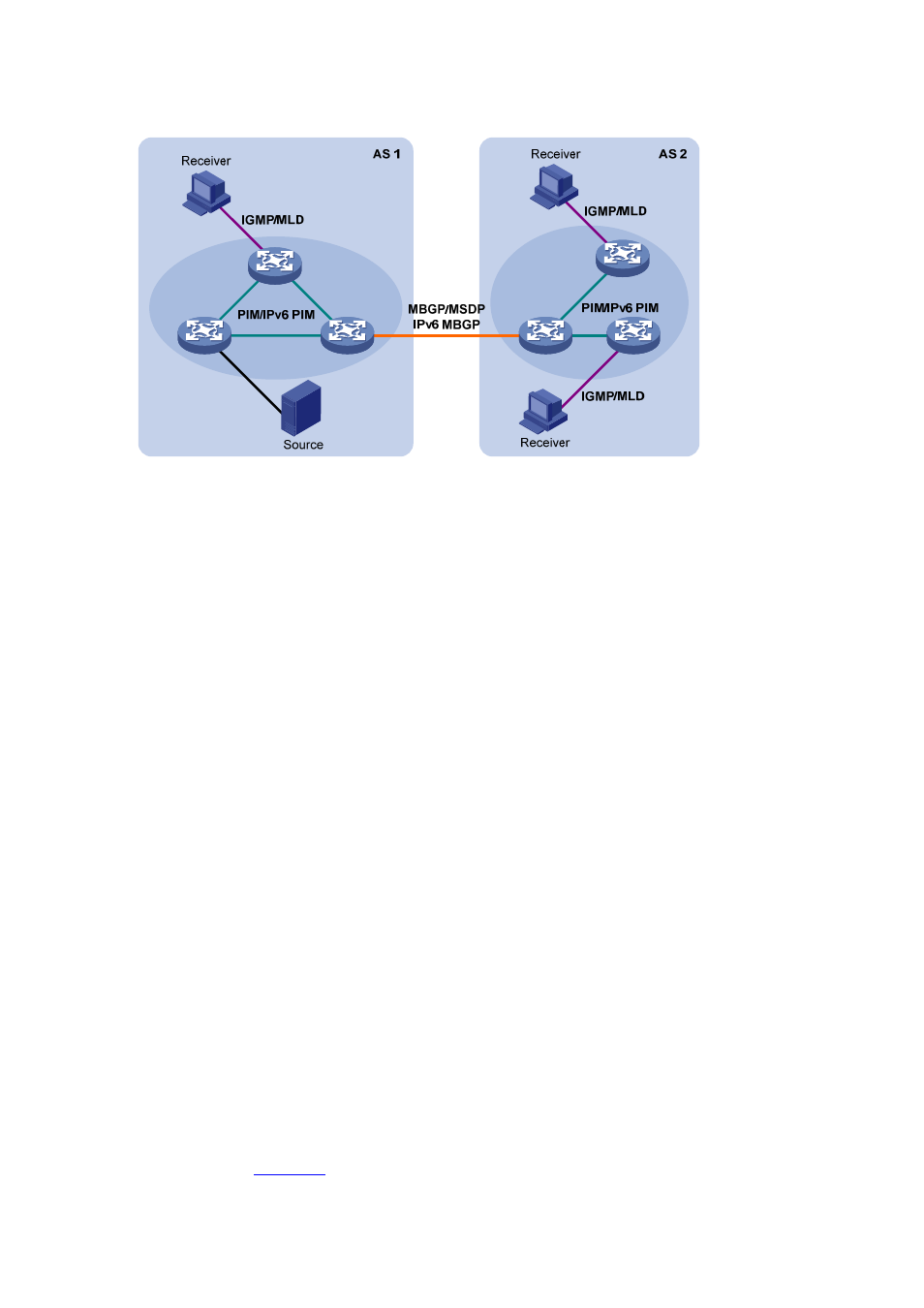Layer 2 multicast protocols, Figure 1-8, Describes where these multicas – H3C Technologies H3C S7500E Series Switches User Manual
Page 29

1-12
Figure 1-8 Positions of Layer 3 multicast protocols
1) Multicast management protocols
Typically, the internet group management protocol (IGMP) or multicast listener discovery protocol
(MLD) is used between hosts and Layer 3 multicast devices directly connected with the hosts.
These protocols define the mechanism of establishing and maintaining group memberships
between hosts and Layer 3 multicast devices.
2) Multicast routing protocols
A multicast routing protocol runs on Layer 3 multicast devices to establish and maintain multicast
routes and forward multicast packets correctly and efficiently. Multicast routes constitute a loop-free
data transmission path from a data source to multiple receivers, namely, a multicast distribution tree.
In the ASM model, multicast routes come in intra-domain routes and inter-domain routes.
z
An intra-domain multicast routing protocol is used to discover multicast sources and build
multicast distribution trees within an AS so as to deliver multicast data to receivers. Among a
variety of mature intra-domain multicast routing protocols, protocol independent multicast (PIM)
is a popular one. Based on the forwarding mechanism, PIM comes in two modes – dense mode
(often referred to as PIM-DM) and sparse mode (often referred to as PIM-SM).
z
An inter-domain multicast routing protocol is used for delivery of multicast information between
two ASs. So far, mature solutions include multicast source discovery protocol (MSDP) and
multicast border gateway protocol (MBGP). MSDP is used to propagate multicast source
information among different ASs, while MBGP, an extension of the Multi-protocol Border
Gateway Protocol (MP-BGP), is used for exchanging multicast routing information among
different ASs.
For the SSM model, multicast routes are not divided into inter-domain routes and intra-domain
routes. Since receivers know the position of the multicast source, channels established through
PIM-SM are sufficient for multicast information transport.
Layer 2 multicast protocols
Layer 2 multicast protocols include IGMP Snooping/MLD Snooping and multicast VLAN/IPv6
multicast VLAN.
shows where these protocols are in the network.